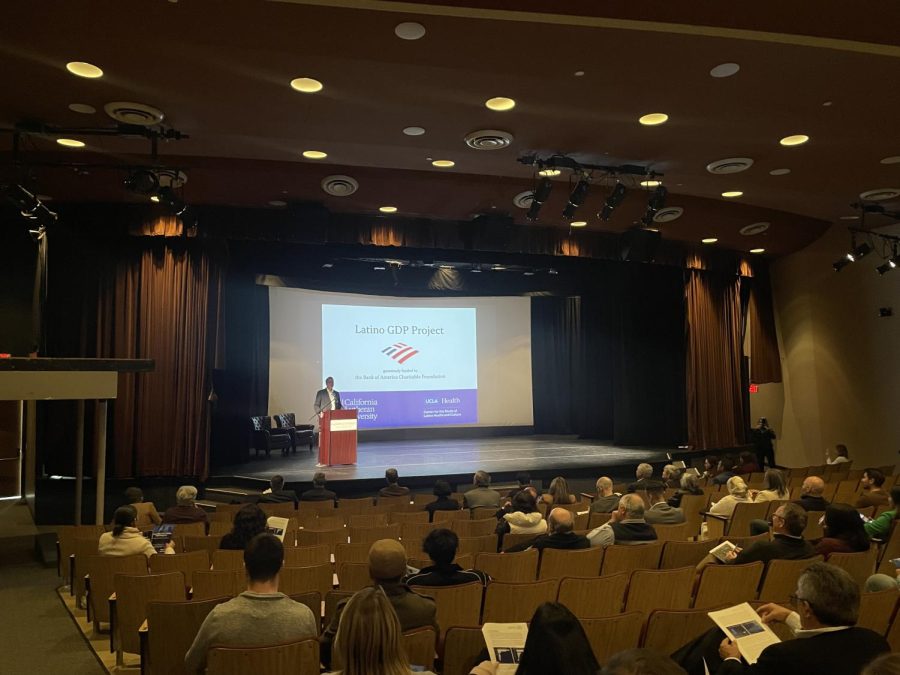Latino GDP Project presentation to ‘help people change their mental model’ about Latino in the U.S.
Photo by Kastenny Flores – Reporter
“Well, first of all, the GDP of Latinos is huge, $2.8 trillion in 2020,” Matthew Fienup, executive director of California Lutheran University’s Center for Economic Research and Forecasting, said during the Latino GDP Project: Los Que Superan presentation. “It’s also rapidly growing. In fact, over the period that we studied from 2010 to 2020, Latino GDP is growing nearly three times faster than non-Latino here in the United States…Well, if Latinos living in the United States were an independent country, their GDP would be the fifth largest GDP in the world.”
April 3, 2023
During The Latino GDP Project: Los Que Superan presentation, Matthew Fienup, executive director of California Lutheran University’s Center for Economic Research and Forecasting, and David Hayes-Bautista, executive director of the UCLA Center for the Study of Latino Health and Culture, discussed the significance and impact of the Latino community in the United States.
“The most important thing we wanted to do is to help people change their mental model of 62 million Latinos in the US. Based on the data, 63 million Latinos mean economic growth, so that’s what we want people to understand,” Hayes-Bautista said.
Hayes-Bautista said millennials are a large percentage of the Hispanic population in the United States. He said that compared to the second generation, first-generation immigrants have a higher percentage of college graduates.
Hayes-Bautista said 90% of Latino millennials in the United States graduate from high school, and over two-thirds of Latino millennials continue to college. He said educational attainment, or the highest level of education completed, has increased for the Hispanic and Latino population and there is a growing rate of 2.8 times the educational attainment growth in the United States over ten years.
Hayes-Bautista said the higher number of Latinos receiving education benefits the United States economy and gives this community the opportunity for higher education that their parents possibly could have not received.
“Understanding the tremendous impact that our Latino population has on enrollment, hiring and retention is a fundamental aspect of our governance work at Cal Lutheran,” Fienup said.
Fienup said because of the size of the Latino population, the contribution reflects a positive effect on the United States economy.
“In LA, Metro Latino GDP is $284 billion, nearly $300 billion of direct economic activity in our neighborhood in the metro area. That’s larger than the entire economy with whole states, like Louisiana and Florida,” Fienup said.
Fiedup said that the effects of COVID-19 demonstrate that Latinos are drivers of economic growth and an incredible source of resilience for the broader US economy. Hayes-Bautista said during the COVID-19 pandemic, Latino farmworkers continued to work every day to ensure there were no food shortages.
“The pandemic had tremendous impacts on Latinos living in the United States, but they were more likely to catch COVID. In many cases, because they were working in frontline jobs exposed to disease, they were more likely to die from COVID,” Fienup said. “That is because Latinos, yes, got sick, went to work, in many cases, affected members of their households, lost family members, and immediately returned to work. And we’re holding up the economy in the United States in the face of the pandemic to Latinos.”




















